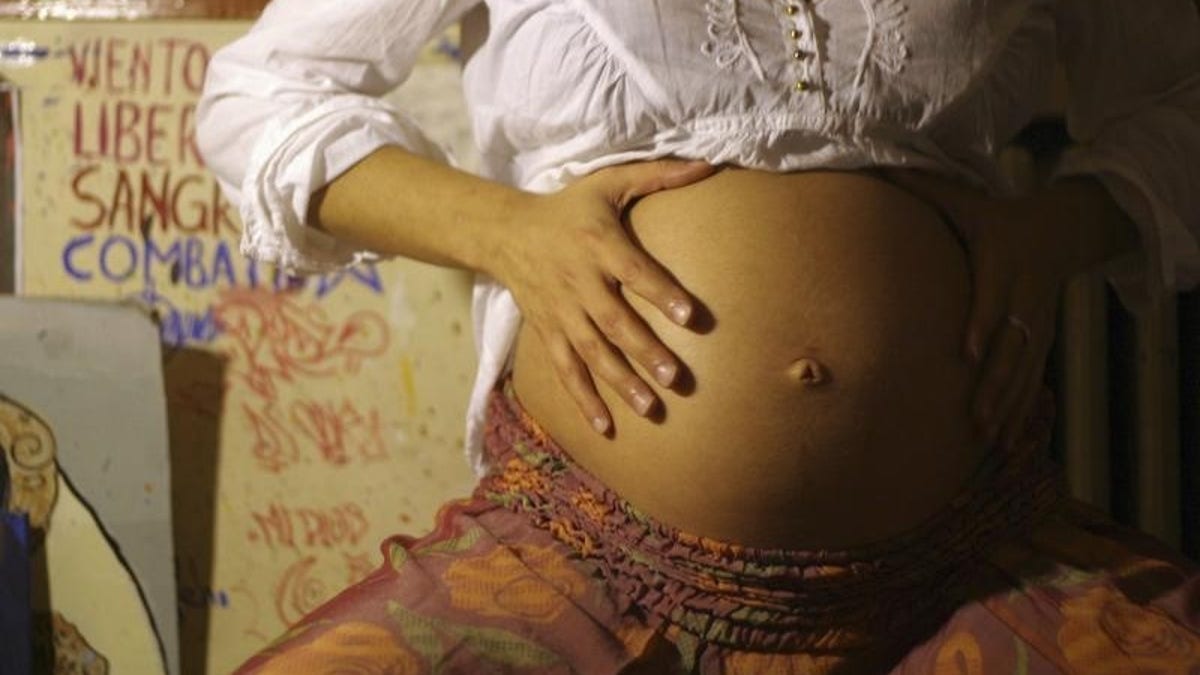
An eight-month pregnant woman touches her stomach at her home in Buenos Aires October 11, 2012. Debate on legalizing abortion has made little headway in Argentina due in part to President Cristina Fernandez's opposition. Catholic leaders condemn abortion under any circumstances and many people share their beliefs. Picture taken October 11, 2012. REUTERS/Stringer (ARGENTINA - Tags: SOCIETY POLITICS) - RTR392OR (Reuters)
NEW YORK – Women in many U.S. states are given misleading information in state-issued brochures when they seek abortions, such as characterizations of fetal and embryonic development, according to a study released on Monday.
Thirty-one U.S. states require women to be given informational packets ahead of getting an abortion in a practice known as informed consent, according to the study by researchers at Rutgers University in New Jersey.
Their findings come just days before the U.S Supreme Court is set to hear arguments in its first abortion case in nearly a decade.
Looking at brochures issued in 23 of those 31 U.S. states, the researchers said they found nearly a third of the information to be medically inaccurate. The brochures are authored by and required by the states.
Based on those findings, the researchers estimated that nationwide, 35 percent of women having abortions were given information exaggerating the development of fetuses and embryos.
For example, a Wisconsin brochure said a 20-week-old fetus "may feel pain" and a North Carolina pamphlet said fetuses between weeks 12 and 14 had fully formed lips and noses and have fingernails beginning to form, the study said.
Such characterizations are incorrect, the researchers said.
"Misinformation is a threat to the integrity of the doctor-patient relationship and to the medical system as a whole," said Cynthia Daniels, the study's lead author and a professor who heads Rutgers's Informed Consent Project.
"This study shows the problems that occur when politicians intervene into the doctor-patient relationship," she said.
The nation's highest court on Wednesday is scheduled to hear challenges to a 2013 law in Texas that requires doctors at abortion clinics to have admitting privileges at nearby hospitals and for clinics to meet the standards of ambulatory surgical centers.
Critics say the Texas law is unnecessary, superfluous and expensive and creates an undue burden on women seeking abortions.
Abortion has been legal in the United States since 1973.
The study found that the U.S. states with the worst records regarding the medical accuracy of their brochures were North Carolina, Michigan and Kansas.
Worldwide, about three in 10 countries allow abortions on request or for any reason, according to a 2015 Pew Research Center analysis, although many prohibit procedures after a certain point in the pregnancy.








































